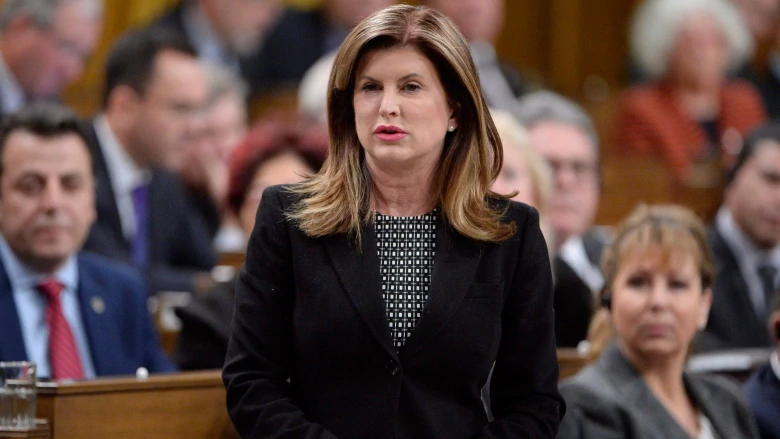Connection
Latest news
CACC Meets with UHM Voice of the Workers and Malta Government Lawyers
In 2022, UHM Voice of the Workers marked a significant milestone by negotiating the very first collective agreement for the Attorney General’s Office. The groundbreaking efforts of UHM Voice of the Workers have not gone unnoticed. Their achievements resonated across borders, drawing the attention of the Canadian Association of Crown Counsel (CACC). At a recent meeting on the sidelines of the Commonwealth Lawyers Association conference in Malta, representatives from the CACC engaged with UHM delegates to learn from their experiences.
[ ...More ]Publication date : 2025-04-11
A system in crisis: Rebuilding the dwindling Crown Attorney’s Office
With more files, more complex files and less resources, not surprisingly, Crown Attorneys are burning out and quitting. The lack of sufficient lawyers, especially experienced lawyers, has led to crisis in many provinces. Associations representing Crown Attorneys in Alberta, Ontario, New Brunswick and Nova Scotia have recently sounded the alarm...
[ ...More ]Publication date : 2025-03-14
Crown attorneys call on Manitoba government to help address ‘dangerously heavy caseloads’
The Manitoba Association of Crown Attorneys (MACA) is calling on the provincial government to help reduce mounting workloads that it says are making it difficult for prosecutors to meet their professional responsibilities. grievance it filed in April 2023. It says the grievance it filed back in April 2023 regarding 'dangerously heavy caseloads' won't be heard by an arbitrator until October 2025.
[ ...More ]Publication date : 2025-01-10
Preparing RCMP body-cam evidence for court will be monumental task, prosecutor says
The RCMP is phasing-in the use of body-worn cameras across the country and expects 90 per cent of frontline members to be wearing them within a year. Shara Munn, president of the New Brunswick Crown Prosecutors Association, said while the body-camera evidence will be great to have, it will also mean a huge influx of work for prosecutors.
[ ...More ]Publication date : 2025-01-06
N.L. government invests in 18 new Crown attorneys amid severe staffing crunch
Newfoundland and Labrador Justice Minister Bernard Davis announced Wednesday afternoon that the provincial government is investing nearly $24 million to improve the province's justice system.... The investment comes after CBC News reported in numerous stories that Crown attorneys in the province were "suffocating" from overwhelming workloads and a critical staffing shortage.
[ ...More ]Publication date : 2024-11-14
Newfoundland to add more Crown prosecutors
Newfoundland and Labrador has agreed to hire more Crown lawyers following cries of a shortage of prosecutors in the province. The “multi-year investment” will include the hiring of 18 new Crown lawyers, according to a news release.
[ ...More ]Publication date : 2024-11-13
<-- Back to archived news
Crown prosecutors need more training in sexual assault law, MPs hear
11-04-2017

The Commons committee on the status of women is studying a private member's bill by Interim Conservative Leader Rona Ambrose that would make training in sexual assault law mandatory for judges. MPs on the committee heard Tuesday that Crown prosecutors need training as well. (Adrian Wyld/Canadian Press)
MPs studying a bill proposing to make legal training on sexual assault mandatory for prospective judges have heard that federal Crown prosecutors also feel they need more education on the law.
The House of Commons committee on the status of women is studying a private member's bill introduced by interim Conservative Leader Rona Ambrose.
It proposes making comprehensive sex assault legal training mandatory for anyone applying to be a federally appointed judge and requiring written decisions in all cases that involve sexual violence.
Among those who testified this morning in Ottawa is Ursula Hendel, president of the Association of Justice Counsel, which represents 2,600 federal lawyers and prosecutors. She supports more education for judges but says they're not the only ones who need it.
"The truth of the matter is that no training of any kind is actually mandatory for Crown prosecutors," she told MPs.
Hendel was speaking for federal prosecutors, who handle sexual assault cases in all three territories. Hendel estimated that in the first 10 years of her career, she prosecuted more than 500 such cases — roughly one a week.
"I'd like to see training made mandatory for prosecutors, and particularly for prosecutors who conduct sexual assault cases — and early in their career. I didn't get training until I was at least five years in and by then it was a little late," she said.
Federal Crowns get most of their training from the Public Prosecution Service of Canada's "prosecutors school," which is a five-day course offered once a year. However, a spokesperson for the PPSC told CBC News it doesn't offer any courses on sexual assault because it isn't in its mandate.
Those who choose to take such training can receive it from the provincial government in B.C.
Making it mandatory, according to Hendel, would make a big difference.
"If it's not mandatory, it's very difficult to get it done. So the year goes by and even though you had the best of intentions to go off on training, or your manager had the best of intentions to send you on training, you're on back-to-back trials," she said.
Written judgments
As for judges, the Canadian Judicial Council last week decided to make its two-week introductory seminar for all new federally appointed judges mandatory.
While that news was welcomed by MPs and legal experts who testified today, they all said more needs to be done.
"We are at a crisis point in terms of the public's confidence in the justice system's ability to respond to allegations of sexual assault," said Dalhousie University law professor Elaine Craig, who is widely regarded as an expert in sexual assault law.
Craig is among those who support one of the main pillars of Ambrose's bill.
"Requiring written decisions also has the potential to ensure more thorough, careful and well-reasoned judgments in what is undoubtedly a very sensitive and difficult area of law," she said.
Craig noted that trial transcripts are difficult and expensive to obtain, making it difficult for researchers, the public and legislators to understand how well judges are applying the law or employing outdated "rape myths" in their decision-making.
"There's several recent examples of cases which involve conduct or reasoning by trial judges that is problematic but that only came to light because a reporter happened to be in the room," she told the committee.
Requiring judges to reserve their decisions, write them out and somehow make them accessible to the public comes with its own set of challenges.
Justice Adèle Kent, who heads up the National Judicial Institute, told MPs that would lead to delays for litigants. Ottawa University law professor Carissima Mathen noted it would also be expensive for courts, given their already tight resources.
There are also jurisdictional headaches given that most sexual assault cases are heard at provincial court.
But NDP MP Jenny Kwan said it's all about priorities.
"Is access to justice for women who experience sexual violence a priority for us as Canadian society? If it is, then our government should put the resources in place. It needs to be in place for every single step of the process."
https://www.cbc.ca/news/politics/justice-committee-crown-prosecutors-sex-assault-training-1.4066476

